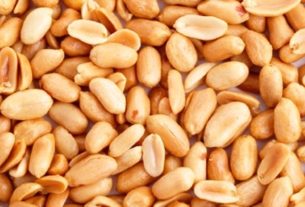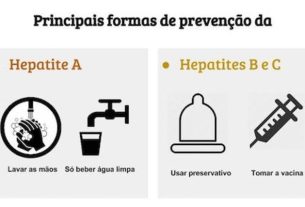Medicines for gastroesophageal reflux, such as sodium bicarbonate, omeprazole or cimetidine, help to inhibit the production of acid, or neutralize the acidity in the stomach, relieving reflux symptoms, such as heartburn or a burning sensation that can reach the throat. and chest, in addition to the stomach.
Gastroesophageal reflux is the return of stomach contents to the esophagus and towards the mouth, causing pain and constant inflammation of the esophageal wall and symptoms such as heartburn, regurgitation of food, indigestion or excessive burping.
Read too: Gastroesophageal reflux: what it is, symptoms, causes and treatment
To find out which treatment is best for gastroesophageal reflux, it is recommended to consult a gastroenterologist, as medications can cause side effects such as decreased blood pressure, agitation, urine retention or even palpitations or cardiac arrhythmia.

Main remedies for gastroesophageal reflux
The main remedies for gastroesophageal reflux that may be recommended by a gastroenterologist are:
1. Vonoprazan fumarate
Vonoprazan fumarate is a competitive potassium acid blocker, indicated for the treatment of erosive reflux esophagitis caused by gastroesophageal reflux, as it inhibits the production of acid in the stomach, helping to relieve heartburn and burning sensation.
This medicine is found in the form of tablets with the trade name Inzelm, and is sold in pharmacies or drugstores upon presentation of a medical prescription.
How to use: The normally recommended doses of vonoprazan fumarate range from 10 to 20 mg, once a day, taken before or after a meal, for the duration of treatment recommended by the doctor.
Contraindications: This medicine should not be used by children under 18 years of age, pregnant or breastfeeding women or by people who are allergic to the tablet’s components.
2. Omeprazole
Omeprazole is a proton pump inhibitor that works by inhibiting the production of acid in the stomach, through the inhibition of the proton pump, which is a type of protein present in the cells of the stomach wall.
In this way, it allows the mucosa of the stomach and esophagus to heal, and helps to reduce the symptoms of gastroesophageal reflux, such as heartburn, a burning sensation in the stomach or throat or excessive belching.
This medicine can be found in the form of 10, 20 or 40 mg capsules, as the generic “omeprazole” or with commercial names such as Uniprazol, Elprazol or Nelprazole. Omeprazole can also be offered free of charge by the SUS.
How to use: the normally recommended dose ranges from 10 to 20 mg, once a day, before breakfast, for the duration of treatment advised by the doctor. Learn how to take omeprazole correctly.
Contraindications: omeprazole is contraindicated for children under 1 year of age, pregnant or breastfeeding women and people with serious liver problems or who are allergic to the components present in the capsules.
3. Dexlansoprazol
Dexlansoprazole is another proton pump inhibitor indicated for the treatment of heartburn or a burning sensation caused by non-erosive gastroesophageal reflux.
This medicine can be found in the form of delayed-release hard capsules containing 30 mg or 60 mg of dexlansoprazole, under the trade name Dexilant.
How to use: The normally recommended dose of dexlansoprazole to alleviate the symptoms of non-erosive gastroesophageal reflux is 1 capsule of 30 mg, once a day, taken on an empty stomach, for up to 4 weeks, according to the guidance of the gastroenterologist.
Contraindications: dexlansoprazole is not indicated for children under 12 years of age, pregnant or lactating women and people who are being treated with atazanavir, nelfinavir, methotrexate, warfarin or St. John’s wort.
4. Rabeprazole sodium
Rabeprazole sodium is also a proton pump inhibitor that may be indicated for the treatment of gastroesophageal reflux symptoms or long-term maintenance treatment.
This medicine can be found in the form of 10 or 20 mg coated tablets, with trade names such as Pariet or Iniparet or the generic name “rabeprazole sodium”.
In addition to rabeprazole sodium, omeprazole and dexlansoprazole, other proton pump inhibitors that may be recommended by the doctor are esomeprazole, pantoprazole or lansoprazole, for example.
How to use: The normally recommended doses of rabeprazole sodium are 10 to 20 mg, once a day, taken in the morning, on an empty stomach and for the duration of treatment advised by your doctor.
Contraindications: This medicine should not be used by people under 18 years of age, during pregnancy or breastfeeding, or by people who have serious liver problems, low magnesium levels in the blood, or who are being treated with methotrexate, atazanavir or cyclosporine, for example.
5. Cimetidine
Cimetidine is a histamine receptor antagonist indicated for the treatment of reflux esophagitis caused by gastroesophageal reflux, as it acts by inhibiting the production of acid in the stomach, by binding to proteins present in the cells of the stomach wall, preventing the action of histamine. which, when activated, increases the production of acids.
How to use: This remedy must be taken according to the doctor’s instructions and the dose normally recommended for adults to cure reflux esophagitis and alleviate symptoms is 400 mg of cimetidine, 4 times a day, with meals and before bed, during 4 to 8 weeks.
Contraindications: cimetidine is contraindicated for children under 1 year of age, pregnant or breastfeeding women and people being treated with dofetilide. Furthermore, the most common side effects include diarrhea, headache, drowsiness, tiredness, muscle pain and/or constipation.
6. Domperidone
Domperidone is an accelerator of gastric emptying, which may be recommended by the doctor for the treatment of gastroesophageal reflux, as it increases gastrointestinal movements, causing food to spend less time in the stomach and preventing food from returning to the esophagus and, therefore, it reduces reflux symptoms.
This medicine can be found in the form of tablets or oral suspension, with trade names such as Motilium, Peridal, Domperix or Domped or the generic name “domperidone”.
Other medications that help speed up stomach emptying that may be recommended by your doctor are metoclopramide and cisapride, for example.
How to use: domperidone should be used at the lowest effective dose and normally for up to 4 weeks to treat reflux, according to the doctor’s advice.
Read too: Domperidone: what it is for, how to take it and side effects
Contraindications: This medicine should not be used by people at risk of bleeding, obstruction or perforation in the stomach or intestine, infants or children under 12 years of age, or during pregnancy. Furthermore, the use of domperidone during lactation should only be done if recommended by the doctor.
Domperidone can also cause side effects such as decreased blood pressure, agitation, nervousness, drowsiness, diarrhea, dry mouth, urine retention or even palpitations or cardiac arrhythmia.
7. Baking soda
Sodium bicarbonate is an antacid that can be used to relieve heartburn or a burning sensation, as it quickly neutralizes stomach acid, temporarily reducing discomfort.
However, this medicine does not cure inflammation of the esophagus caused by stomach acid and is usually used in combination with other reflux medications.
How to use: This antacid should be used diluted in water, with the normally recommended dose being 1 teaspoon of powdered sodium bicarbonate, in a glass of filtered water, taken 30 minutes before a meal.
The use of sodium bicarbonate should not exceed 3 spoons of coffee per day, and can be used for a maximum of 2 weeks, according to the doctor’s advice, as excessive use can worsen the symptoms of heartburn and burning in the stomach.
Contraindications: Sodium bicarbonate should not be used by children under 2 years of age, pregnant women, or by people with alkalosis, vomiting or intestinal obstruction.
Home remedy options
Home remedies for gastroesophageal reflux, such as ginger tea or chamomile tea, contain substances with anti-inflammatory or antacid action, which help to relieve inflammation, acidity and protect the lining of the stomach and esophagus.
These home remedies are a good option to help control bouts of heartburn or a burning sensation in the stomach or throat, and can be used to complement the treatment recommended by your doctor.
Read too: 8 home remedies to treat reflux
Another home treatment option is to make lifestyle changes, such as losing weight or avoiding smoking, and dietary changes by increasing the consumption of vegetables and fruits and avoiding consuming red meat or fried foods, for example.
Watch the video with nutritionist Tatiana Zanin with other tips to reduce the symptoms of gastroesophageal reflux:

Sign up for our newsletter and stay up to date with exclusive news
that can transform your routine!
Warning: Undefined array key "title" in /home/storelat/public_html/wp-content/plugins/link-whisper-premium/templates/frontend/related-posts.php on line 12
Warning: Undefined array key "title_tag" in /home/storelat/public_html/wp-content/plugins/link-whisper-premium/templates/frontend/related-posts.php on line 13



